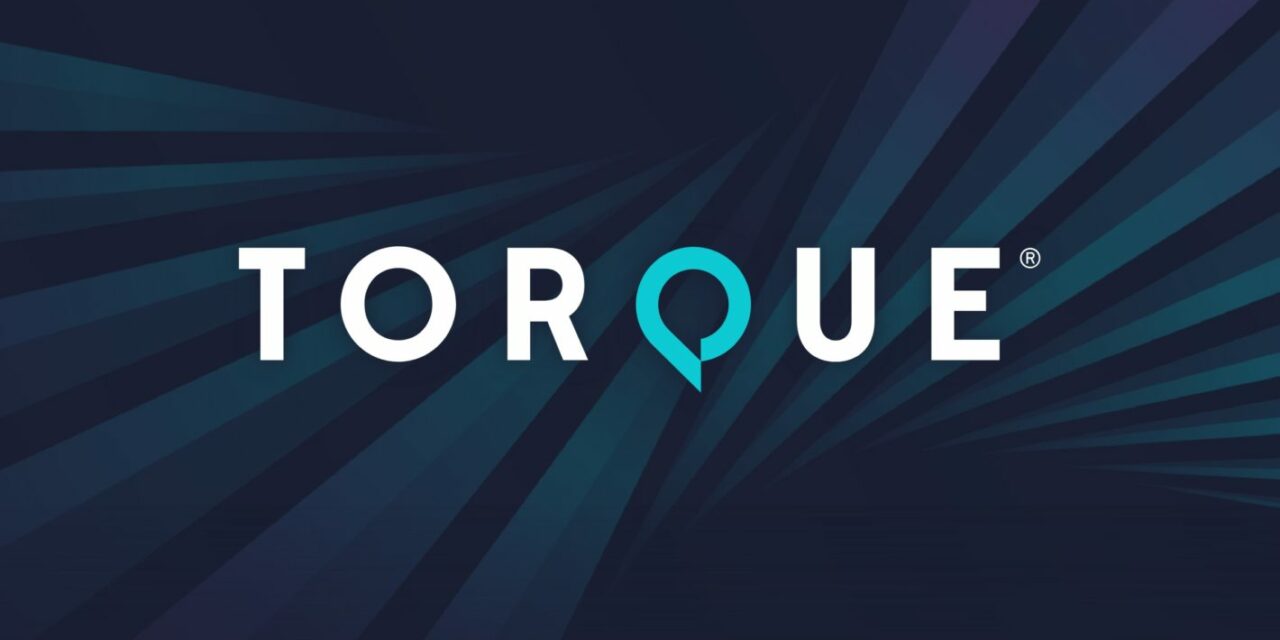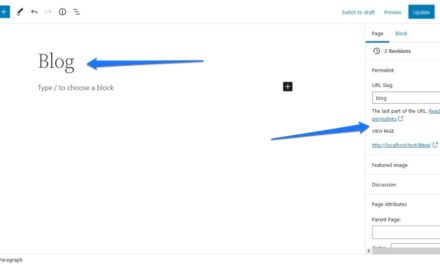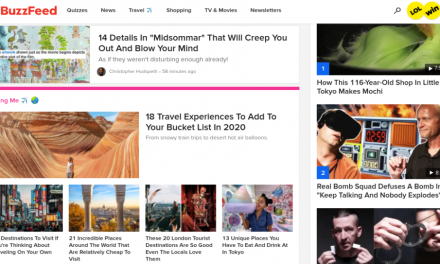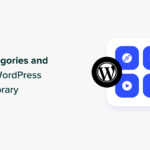Welcome to Press This, the WordPress community podcast from WMR. Each episode features guests from around the community and discussions of the largest issues facing WordPress developers. The following is a transcription of the original recording.
Powered by RedCircle
Doc Pop: You’re listening to Press This, a WordPress Community Podcast on WMR. Each week we spotlight members of the WordPress community. I’m your host, Doc Pop. I support the WordPress community through my role at WP Engine, and my contributions over on TorqueMag.Io where I get to do podcasts and draw cartoons and tutorial videos. Check that out.
You can subscribe to Press This on Red Circle, iTunes, Spotify, or you can download episodes directly at wmr.fm.
If you follow tech, then you know it’s been an exciting time for AI. Last year we saw a boom in text to image synthesis via tools like Dall-e and Midjourney. This year, that excitement seems to have pivoted to tools like ChatGPT. In recent weeks, we’ve seen ChatGPT used for everything from writing high school essays to creating new WordPress plugins with no external coding.
On this episode of Press This, we are joined by Ellis LaMay, a podcaster and WordPress Practice Director at AmericanEagle.com to talk to us about how AI tools like ChatGPT can change the WordPress ecosystem. Ellis, how are you doing today?
Ellis LaMay: I’m doing great. I’m excited to be here. Thanks for having me on the show.
DP: I would love to hear your WordPress origin story before we dive in deep into Large Language Models.
EL: Sure. Yeah. Sounds great. I was thinking about how to tell this story and I think like a lot of people that I’ve met over my years working with WordPress, I kind of fell into it basically by accident. Growing up I was always fascinated with technology and as a kid I would take computers apart and put ’em back together just to try to kind of figure out how they work.
Then eventually that led to trying to figure out how to get them to work in ways they weren’t intended to work in. And you know, I was lucky enough to have a dad who worked for a local college and so he would bring home junk computers from their IT department and that’s how a kind of a never ending source of materials to work with.
As I kind of got a little bit older, I started to get more interested in the software side of things. Started to try to get computers and Windows to do things that it wasn’t meant to do basically. But, uh, eventually I went off to college, believe it or not, and didn’t study computers in college.
The whole time growing up I was also working in bike shops. So at a certain point, the bike shops that I was working for, they needed websites. They needed technological help. And so I was kind of like that internal employee who could always do those things. And one day it sort of just occurred to me that there is a need for a classified bike website that at the time didn’t exist.
And I kind of got this idea from all the customers we’d have that would ask us if we knew of such a thing or if we knew of places that sold used bikes. And so I set about trying to create this on my own, just kind of based on my tech background and my light coding experience. And that was how I basically found WordPress themes.
So you’re talking about probably back in, let’s see, that would’ve been probably 2015ish, 2014 maybe, around there. Once I got my hands on WordPress themes, kind of my childhood passion of like taking things apart and figuring out how they work just came rushing right back in because that’s how I learned theming and plugin building was through basically reverse engineering them.
DP: And as part of your current job, you study technology trends and you’ve always kinda kept your eye on WordPress stuff, but lately you’re also really diving into the potential of AI, including tools like ChatGPT, which I mentioned many times at the beginning of the show.
Can you tell us a little bit about ChatGPT and how it works?
EL: Yeah, I mean, I think there’s kind of the layman’s explanation and then there’s of course deeper explanations about the technology that’s powering it. But on the surface level, it’s really grabbing a lot of people’s attention, including people who are not technologists or maybe don’t consider themselves to be. Because essentially what it is, is a piece of software put out by OpenAI where you can look at a chat-like interface, a box where you type in your input except you’re talking to a computer that has learned off of language models.
It can then interact with you as if it’s a person. So it can do interesting things like understand context that other search interfaces and things like that that most people are used to can’t do. So, that’s essentially it kind of on the surface level. I think beneath that there’s probably some really intense algorithms that work through combing through data and large language models and huge data structures for it to soak up that knowledge.
DP: Before the show you and I were kind of mentioning how one of the things unique to ChatGPT is the chat-like interface where you can kind of have a discussion with the computer and it’ll spit out something very confidently. It may or may not be correct. But that’s kind of the interface that’s happening, and that’s a pretty revolutionary thing. Can you tell us how a tool like ChatGPT, or something else out there like it, how can those improve experiences for WordPress visitors? Visitors to my WordPress site?
EL: Yeah, that’s a really good question. I think that some of the potential that tools like this, and ChatGPT in particular, may have one day for improving user experiences, maybe from the implementer side. And perhaps I’m biased cause I’m a guy who builds websites all day every day. But something I kind of pictured that I thought would be really fascinating is, I get involved in all kinds of UX studies where essentially what we’re doing is taking the feedback from dozens and dozens of users of a website or an application and getting their qualitative feedback on what their user experience was like.
I imagined a situation where you scaled that out to potentially hundreds or thousands of people and then used a tool like ChatGPT to do the analysis on those large volumes of qualitative feedback. Just to distill it down into some takeaways, some literal actionable, tasks or steps you could take with your interface based off of analyzing thousands of user feedback sessions. And that’s something that people could do, but it would just take a long, long time.
DP: I think that sounds pretty cool if I understand that correctly. It sort of sounds like you are describing running a test or just kind of looking at the way users visit your site and then you have this big data and having something like ChatGPT to help kind of break that data down so that you don’t have to know how to look through all that data. You can have something kind of talk to you and give you suggestions. Is that what you’re saying?
EL: Yeah, pretty much. Imagine you give a survey to say a thousand people, where you ask them to describe their experience using a piece of software. And you just leave it open-ended like that because you’re looking for their qualitative feedback. At the end of that survey, someone’s gotta go through all that feedback and distill it down into some kind of takeaway.
What does it mean? What does it tell us? What can we learn? That’s a very large task for a human being to go through, right? Reading thousands of feedback surveys and kind of tracking the input and sort of pulling it together in a cohesive message. But if you’ve got something like ChatGPT that can understand context, but because it’s ultimately a computer power through those tasks much faster. You can get much larger takeaways from big data. Like really fast.
DP: We’re already kind of talking about how web developers can use this for improving sites. We’ve got things like Copilot from GitHub, which allows developers to kind of have things auto completed, I guess. Kind of like having a computer help you write code and not write the code for you.
Is this something that you think WordPressers are gonna see or are already using, maybe Copilot to code WordPress?
EL: I think that’d be really cool. I have seen, I don’t know if they’re ChatGPT affiliated per se, but I have seen the emergence of a couple AI tools out there that report to write WordPress code. Right? So this could be something like building out the structure for a Custom Post Type with some custom meta fields where what you’re putting into this software is just the layman’s description of what you want.
And then the AI will actually translate that into code and structure your content types and Custom Fields. So I’ve seen stuff like that out there in the wild. I think the real thing I’m curious about is how reliable these technologies are, especially at this stage of the game. Mostly because my experience with developing websites, particularly WordPress, is that the context of other plugins and other site functionalities matters heavily.
So I don’t know if AI can account for that just yet, but I’d imagine that’s coming soon in the near future.
DP: I think that’s a good spot for us to take a quick break, and when we come back, we are gonna continue our conversation with Ellis LaMay about the potential of using AI tools with WordPress. Stay tuned.
DP: You’re listening to Press This, a WordPress Community podcast. I’m your host, Doctor Popular, and joined this week by Ellis LaMay, a podcaster and WordPress Practice Director at AmericanEagle.com. And Ellis has been studying the potential of AI tools like ChatGPT and kind of thinking about how they could be used by WordPress developers and just website developers, not just WordPress.
And we’ve talked so far about Copilot and how ChatGPT could potentially help people create sites. I’m kind of curious, have you seen any of your research, have you seen any cool examples of ChatGPT being used on a website in a way that you just weren’t expecting?
EL: I’m trying to think of unique examples. I’m a little hard pressed to come up with some unique ones, but I have definitely seen it being used in ways that you would kind of guess. Right. And I think one of the topics that a lot of folks are aware of by now is how a lot of these technologies are being used to generate content really quickly.
A big part of getting your name out there, promoting a brand and climbing up Search Engine results is a matter of putting out good content regularly. And so I think that’s where the most immediate fit is gonna be for things like this. And I’ve seen even as of this week, there’s two plugins out there that allow you to install a plugin into WordPress, connect an API key to get ChatGPT working within that plugin, and then start generating blog content based off of some keywords or topics you give it. And the one I was playing with earlier today, actually, even writes that content with structured headings and the right semantic markups.
So, I think for marketers right now, it’s kind of the Wild West because they can use tools like that to quickly, sort of prototype and ideate blog content and then perhaps tweak it from there.
DP: Talking about Gutenberg blocks and their potential for something like this. I wanna mention that we have talked to the creators of Imajinn, which is an AI art generator. And it takes place as a WordPress block. So you install the plugin and then you just add a block in the middle of your post and you can type in your prompt.
And I’ve been using it sometimes to create featured images for posts, right? Like that’s always a hard thing when you’ve got everything kind of ready and you know you need to have a featured image, you just don’t wanna grab a stock photo, and you don’t really have time to create a photo of your own.
So there’s ways that I’ve already been kind of integrating AI into my workflow for generating content. And then what you’re talking about, it sounds sort of like a plugin installed and then a block and you can kind of, within your dashboard, create content around probably a prompt.
That sounds pretty cool. There’s this talk that the generated content might start overwhelming Google search and kind of overwhelming the web, right?
It’s very easy and there’s a lot of potential, a lot of incentive for people to create content and if they can do it without hiring someone, if they can just kind of generate it through a ChatGPT, there’s gonna be a lot more of it. And so there’s been this idea that maybe Google might have a way of detecting AI text and maybe try to punish it or anything.
Have you heard anything about Google cracking down on AI generated content?
EL: I haven’t heard any specific news about Google doing this, but it’s really easy to imagine that they would want to, right? Because a few weeks ago, when I first started to hear about ChatGPT and explore it, all you had to do was get on YouTube and within a matter of, like half a minute, you’d start seeing headlines for videos about how ChatGPT is gonna end Google as we know it.
I gotta imagine Google’s not a fan of hearing messaging like that. So from that standpoint, of course they’d probably wanna kind of control this a little bit. But you know, the other thing too is, as a developer, I’ve always been tracking Google pretty much since day one because everything you build has to play well with it from a structure standpoint. But also for digital marketing purposes, ranking and promotion.
You know,what I’m curious to see is, as I’ve understood it, one of Google’s core missions is to kind of democratize the web. Their goal is to basically get the best content, the most relevant content into the hands of people who are looking for it. And so you kind of have to ask the question of, if everyone is using AI to generate content, is content sort of across the board going down in quality? Because you no longer have the critical thinking and thought leadership of people behind it, but some of it’s being generated by a computer, you know?
And if you think about all of the changes to the Google algorithm over the years and how they’ve basically made big strides to weed out things like keyword stuffing, and things like that, you gotta think that they’re gonna start to put an emphasis on staying away from computer generated content because it just won’t be viewed as authentic as human generated content.
DP: Yeah, I mentioned earlier, the answers ChatGPT gives are very confident, whether it’s writing code or whether it’s giving you a book report. And it is definitely a better writer than I think I am. I have to admit, that’s not my strong point. But just because it’s a better writer, I am personally a little worried that it might start to trend higher on Google with not necessarily the correct answers.
And I don’t know if Google has a fix for detecting AI, but also for detecting accuracy. But then I guess that’s a whole other thing that currently we haven’t worried about. Google detecting how accurate is a thing? We just look at how long visitors stay in the site, how does the site perform? And other parts of their algorithm. There’s gonna have to be some tweaking for Google to still be relevant in a post-ChatGPT world, it seems.
EL: Yeah, it really will. And I almost wonder too, where that sort of thing kind of collides then with the world of academia. Some of the people that I’ve talked to about this over the last few weeks are people who are teachers at all levels, and one of the first questions they have is almost this look of astonishment, where they look at me and go, “Oh my gosh, are my students already using this to like cheat on papers and things?”
And my genuine answer is, I don’t know, but maybe. And so you gotta wonder too, you already have Google and search engines that really changed the landscape of how students did their work. But that was 20 years ago, you know? And so kind of what new sort of risks is ChatGPT gonna invite into that scenario?
I think it’ll be really interesting to see how that plays out.
DP: There is a lot of conversation too about how calculators were going to break students. Like students need to know how to do all this very advanced math, not everyday math, but some of the more advanced stuff. They need to know how to do that, even though is it something they’re actually gonna have to apply.
I think there’s probably 20 years from now, there’s a chance that we might be looking back at these conversations in the same way that we are looking back at “How calculators ruined high school for students.”
EL: Yeah, absolutely. It could be, and I think with every technical advancement, there’s the potential that it’s used for good and then the potential that it’s used for not good. I’m kind of a self-taught person. A lot of the things that I know about development and that have been pivotal for me in my career development have been things I’ve self-taught myself.
It’s interesting developing your career that way because for me it’s essentially a matter of piecing together a bunch of great resources and learning how to learn along the way. But I have had occasions sometimes of learning certain languages where you kind of get stuck and you need someone to sort of fill in a knowledge gap for you.
And when you’re a self-learner, you’re kind of at the whim of what you can find going through Google. I think that ChatGPT could actually be something that helps facilitate people who are self-learners because it could help show them resources that they might not know exist or just fill in knowledge gaps because it’s got that context from those language learning models.
DP: On that point, there are tools, I think we mentioned, or alluded to them earlier, tools like CodeWP, which is a website where you can go and explain what you want out of a plugin and AI will create it. I think they’re using ChatGPT, to create a plugin that may or may not work, but supposedly it’s trained on WordPress plugins as its knowledge base. So it should be very specialized for that. Do you think at the moment this is a good tool for people to use if they wanna avoid coding? Should they be using tools like that?
EL: I think right now I’d have to go with kind of a solid No. The reason being is because again, the context of the rest of your application matters. If you kind of push all that context to the side, and you write a plugin to do some specific functions or something specific, I think there’s a high likelihood that you would install that plugin and then have conflicts with the rest of your ecosystem, or maybe encounter conflicts later on.
Right? As you introduce new variables and factors into your site architecture, you’re writing more functions, you’re building more functionality. I just think that it’s not like a slam dunk one and done. I kind of look at ChatGPT and other tools like it, sort of like any other tool.
The hammer doesn’t build the house. The person holding the hammer builds the house and that person needs to take into context a lot of other factors along the way during that journey. And I just see ChatGPT as really no different, at least for now.
DP: That’s another great spot for us to take a quick break and when we come back, we will talk to Ellis LaMay about potential uses for ChatGPT that he sees for WordPress developers. So stay tuned for more.
DP: Welcome back to Press This a WordPress Community Podcast. I’m your host, Doc Pop, and this week we are talking about ChatGPT with Ellis LaMay, the WordPress Practice Director at AmericanEagle.com.
Ellis, at the beginning of the show, you were saying you’re keeping your eye towards this technology, and you also were saying you’re building websites on a daily basis.
I’m kind of wondering, have y’all had the conversation yet about using ChatGPT for some web design for some project at AmericanEagle.com?
EL: Very, very lightly. And I think one of the practical uses that we see for it during development is filling in placeholder content. I think everyone who’s worked on a website at some point has gone to a Lorem Ipsum website to basically copy and paste tons of placeholder content so that they could just simply build out their layouts.
And when you’re presenting prototypes and concepts to clientele, It really does go a long way to have some relevant content in your designs that at least it isn’t Lorem Ipsum. And so for now, we’re just kind of dipping our toe and starting to use it for creating blog titles and things like that.
Really just for the purpose of demoing sites, we’re not really promoting it as a tool to replace thoughtful content writing, but that’s one way we’re using it. But we also have a great program at American Eagle called The Hatchery, where its sole purpose is to build upon emerging technologies and try to come up with innovative ideas to carry ’em forward.
And so, I can’t share any details yet, but there have been some ideas recommended to The Hatchery for developing it further.
DP: The example you were just mentioning about using it to create dummy content, I hadn’t even thought of that. That’s such an obvious one, but that’s such a game changer if you are building sites and you wanna be able to show here’s how it would look to a restaurant, or here’s how this site would look for something else.
And maybe even have some localized text in there or whatever. All with prompts. Man, that would be so much better than Lorem Ipsum. That’d be like Lorem AI-ipsum it reads in my head, but it doesn’t sound good. But that’s a really cool usage. That’d be cool if we saw something like that out there.
EL: All right. Well, maybe a listener will take that idea and push it forward.
DP: It might be early days and I know that a lot of bugs are still getting worked out and we said, we probably wouldn’t be using this to code a website yet. But I think early days, one of the things I’m kind of most excited about is definitely using it as part of my workflow.
If I make a video and I’m kind of struggling to come up, Description of it that needs to go in the body of the text. I might go to ChatGPT and kind of tell it kind of what I’m looking for and it gives me something. And I don’t think I’ve used that exactly yet, but it’s helped me out a lot.
And I have, even for art, I’ve used Midjourney kind of help get started with an art idea and then I end up redrawing it from scratch. So just integrating it into my workflow, not necessarily replacing my workflow with it has been really nice for me. And it kind of sounds like y’all are thinking in the same way.
EL: Yeah, I agree. You know, one simple way that I’ve used it over the last couple weeks is to get quick references to the meaning of things while I’m on calls with clients and partners. It’s almost kind of embarrassing to admit, but an example would be the other day I was on the phone with some leadership from an insurance company.
We were talking about the 2.0 version of their website and there’s a lot of acronyms in the insurance world, and it was really helpful to have ChatGPT up because I could just type into it, “What does blah, blah, blah mean relative to car insurance?”
And even though I could do the same thing through Google, you still have that sort of manual aspect to Google where you have to make sure that you know what you are looking at is the right result.
And you might have to kind of peruse through some of Google’s interface to find your literal answer. But with ChatGPT I just get the answer. So that’s been pretty useful. And the people that I’m talking to on the phone really have no idea that I’ve got that in my back pocket. So I think a lot of little uses like that will continue to embolden the business world.
DP: Well, that’s really interesting. I really appreciate your time today talking to me about ChatGPT. I think I’m thinking about it in much different ways than I was before. Ellis, if people want to follow you online, what’s a good way to kind of keep up with the work you’re doing?
EL: You can follow me on AmericanEagle.com’s blog. As well as on LinkedIn.
DP: Well, I really appreciate you joining me for this episode of Press This. Press This is a weekly podcast. Next week we’re gonna be talking to Ryan Singel from Contextly about how to make your website stickier using tools like Contextly. Thanks for listening to Press This. I’m your host, Doc Pop.
You can follow my adventures with Torque magazine over on Twitter @thetorquemag or you can go to torquemag.io where we contribute tutorials and videos and interviews like this every day. So check out torquemag.io or follow us on Twitter. You can subscribe to Press This on Red Circle, iTunes, Spotify, or you can download it directly at wmr.fm each week. I’m your host Doctor Popular I support the WordPress community through my role at WP Engine. And I love to spotlight members of the community each and every week on Press This.











